We're About To See A Bunch Of Intel-Powered Laptops With Thinner Designs And Long Battery Life
Sundar Pichai - Sep 05, 2019
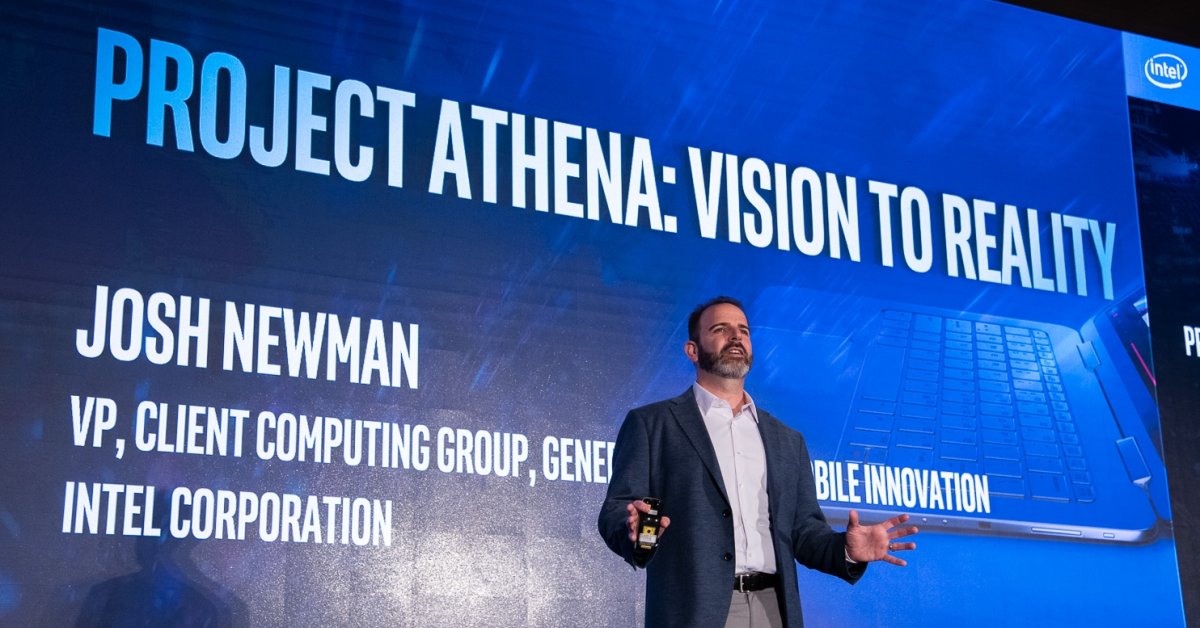
Intel has been developing an innovation program called “Project Athena,” and we're about to see many PCs that are stronger and more mobile like phones.
- Intel Announced 11th-Gen Rocket Lake Processors, Rivaling AMD Ryzen Chips
- Best Laptop Brand In India: Is Apple Truly The Best Choice For You?
- Best Windows Laptops And Chromebooks Under Rs 35,000 For Indian Users
Intel has been developing an innovation program called “Project Athena.” At the IFA electronics trade show 2019 held in Berlin, the chipmaker revealed its ambition to redesign the laptop experience for “on-the-go” people, presenting brand-new features for Intel-powered PCs.
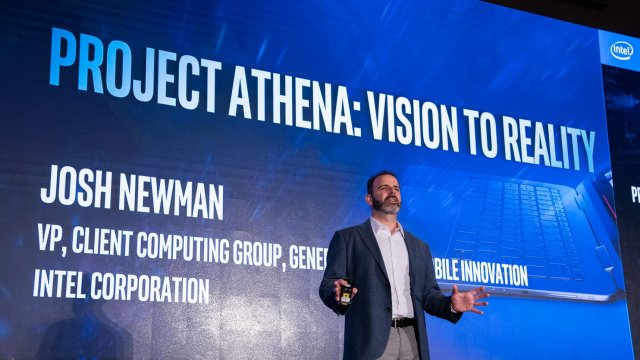
Intel has brought along devices from a group of industry leaders including Acer, Lenovo, and MSI to create laptops with better battery life. Also, the program will keep close to the capability of immediately lighting up with “instant resume” and “the blazing-fast connectivity.”
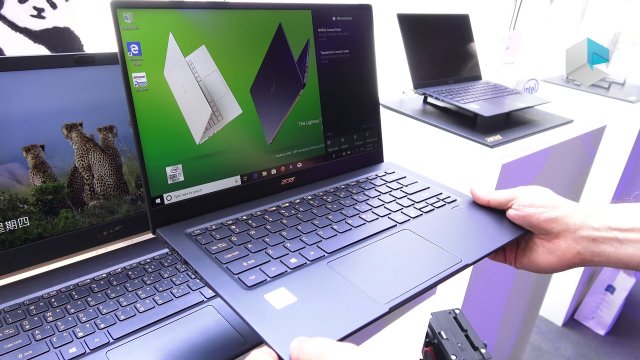
The first knowledge about Project Athena was disclosed in May this year by Intel. It showed up as one of the company’s attempts to address concerns that people are spending more time on their phones instead of laptops due to convenience. As for that, the upcoming devices must fundamentally satisfy the requirements of mobility.
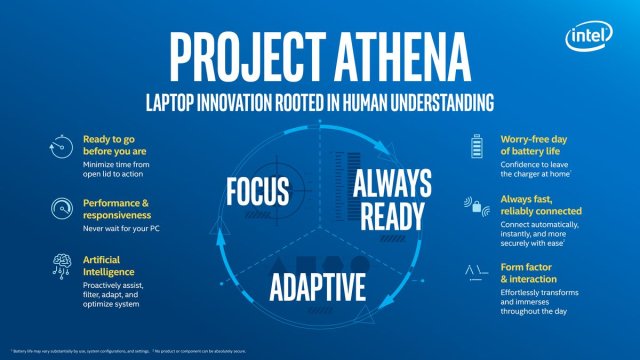
“A new era in laptop innovation” is the flattering phrase Intel used for Project Athena. In fact, the devices facilitated by Intel have not been launched, but still, promise an engrossing user experience. The key focus remains a better battery life that lasts for at least nine hours, brighter screens which can adjust the alteration in the intensity of daylight, as well as the ability to instantly activate. The third requires Intel-powered laptops to complete a biometric process within a second since the lid is opened.
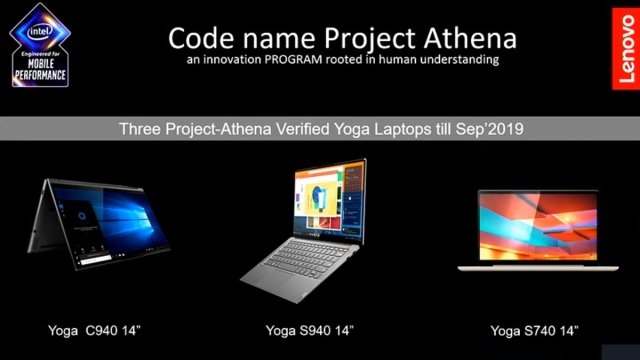
Founder and Chief Analyst of TECHnalysis Research Bob O’Donnell said Intel wanted to facilitate the production of devices with “thinner designs,” “long battery life,” and “better performance numbers.”
Intel’s rival in developing “more mobile” PCs
Intel’s move likely responds to a similar effort by Qualcomm to develop devices using Snapdragon processors. Two years ago, the company partnered with several PC manufacturers and software provider Microsoft with the aim to make laptops consistently transform into tablets.
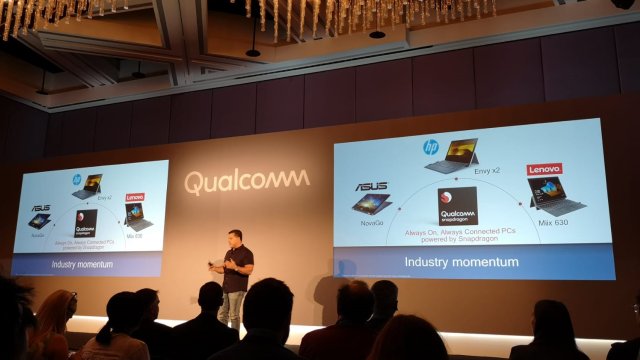
Qualcomm did achieve certain milestones as facilitating 4G broadband and owning massive 23-hour batteries. Several tech corporations like HP, Lenovo, or Samsung have already put these devices on sale.
A typical example can be named as Galaxy Book S, Samsung’s latest Windows PCs powered by the Snapdragon 8cx. The product came out just last month, described as “the best of both worlds.”
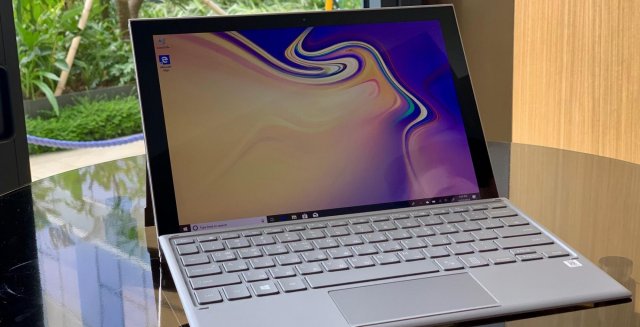
In the meantime, there have been machines compatible with Project Athena requirements such as Dell Inspiron 1450000 and HP EliteBook x360 830. Intel will promote “Engineered for Mobile Performance” marketing for laptops satisfying Project Athena specifications.
Featured Stories
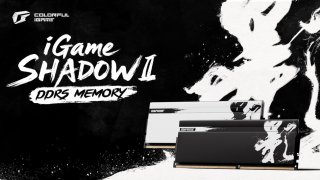
Gadgets - Jul 21, 2025
COLORFUL Launches iGame Shadow II DDR5 Memory for AMD Ryzen 9000 Series
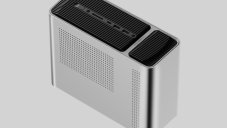
Gadgets - Jun 23, 2025
COLORFUL SMART 900 AI Mini PC: Compact Power for Content Creation

Review - Jun 18, 2025
Nintendo Switch 2 Review: A Triumphant Evolution Worth the Wait

Gadgets - Jun 18, 2025
Starlink: Why It’s a Big Deal for U.S. Internet in 2025

Gadgets - Jun 17, 2025
How Custom PC Setups Support India's Esports Athletes in Global Competition

Gadgets - Jun 12, 2025
Lava Prowatch Xtreme Launches with Google Fit Integration

Gadgets - Jun 07, 2025
Fujifilm Instax Mini 41 Launches in India: Stylish Instant Camera Now Available...

Mobile - Jun 07, 2025
Realme C73 5G Launches in India: Budget 5G Phone Starts at ₹10,499

Gadgets - Jun 07, 2025
OnePlus 13s Makes Indian Debut: Compact Flagship Brings Premium Features at...
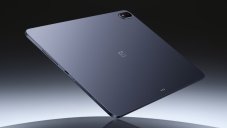
Gadgets - Jun 07, 2025
OnePlus Pad 3 Debuts with Snapdragon 8 Elite Chip, India Launch Confirmed
Read more

Mobile- Feb 16, 2026
Xiaomi Launches Affordable Tracker to Compete with Apple's AirTag
For users tired of ecosystem lock-in or high prices, the Xiaomi Tag represents a compelling, no-frills option that delivers core functionality at a fraction of the cost.

ICT News- Feb 18, 2026
Google's Project Toscana: Elevating Pixel Face Unlock to Rival Apple's Face ID
As the smartphone landscape evolves, Google's push toward superior face unlock technology underscores its ambition to close the gap with Apple in user security and convenience.

Mobile- Feb 17, 2026
Anticipating the Samsung Galaxy S26 and S26+: Key Rumors and Specs
The Samsung Galaxy S26 series is on the horizon, sparking excitement among tech enthusiasts.
Comments
Sort by Newest | Popular